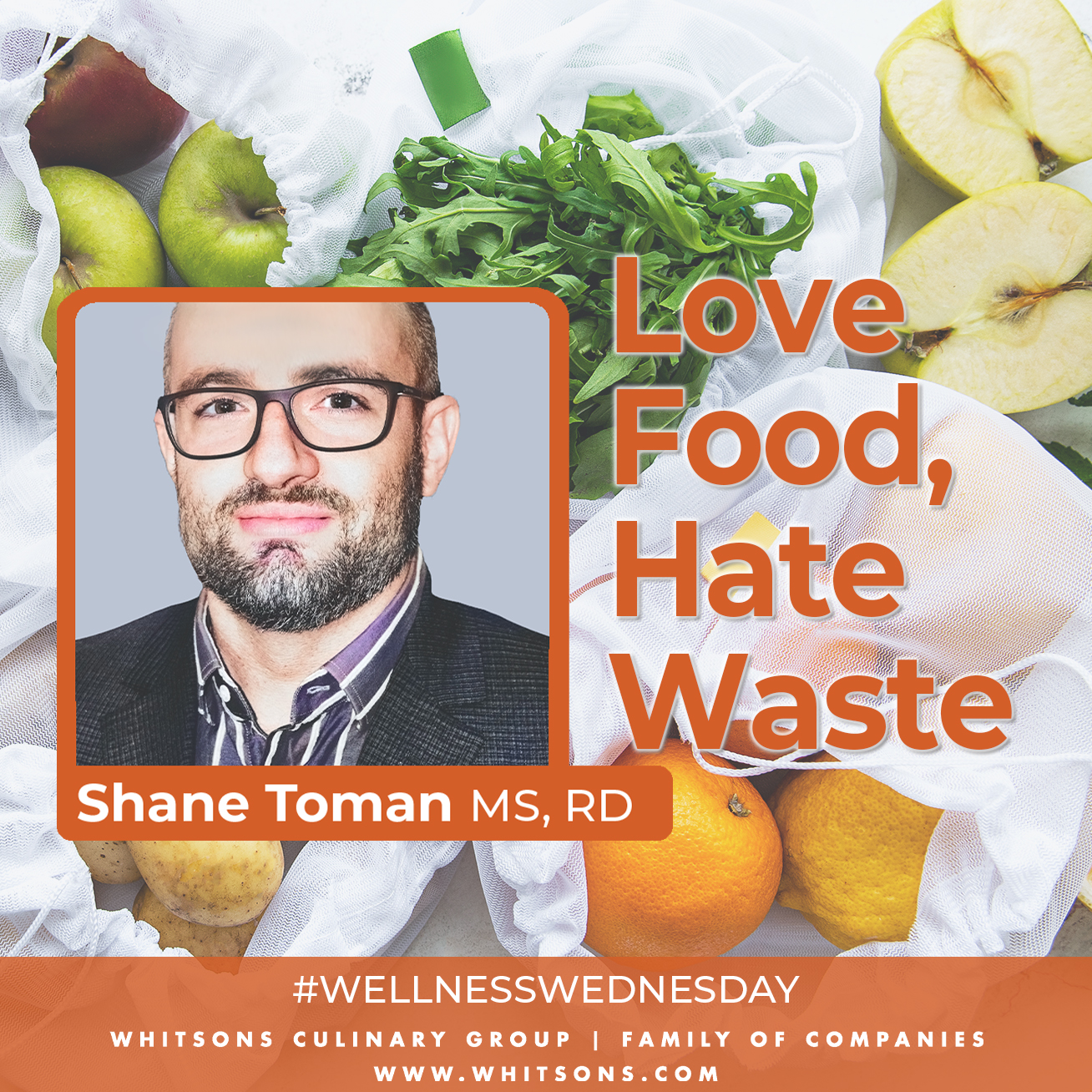Love Food, Hate Waste
Posted on March 11, 2024

Contributed by Shane Toman MS, RD
The United States produces enough food to feed everyone with ease, but food waste can be found at farms, grocery stores, restaurants and our homes, contributing to the hunger crisis and environmental distress. Nearly 10% of the world's greenhouse gases are caused by the production of food that is subsequently wasted. According to Feeding America, 40% of all food - 119 billion pounds - is wasted every year in this country; 35% of that is wasted at home. While we cannot all directly help prevent food waste during production and distribution, we do all have the ability to reduce it at home. Here are a few tips to keep in mind!
Shop with a Purpose.
Making a list always helps, but it is important to know exactly why you're going to the grocery store. Buy items that you are planning to cook or eat and avoid items that are likely to sit around for a long time and potentially expire. Also, it's smart to buy food in reasonable quantities. Buy enough to last, but not so much that you're likely to have to throw it away, especially if it's something that perishes quickly like fresh produce or meats.
Store Foods Properly
Use the fridge and freezer. Most foods are safe to freeze and this can drastically increase the amount of time before having to throw them out. Refrigerate perishable foods and any product that says "refrigerate after opening" on the label. It is important to note, however, that while refrigerating food may extend its usability, bacteria does continue to grow at non-freezing temperatures. This brings us to the next tip: Pay attention to opened items and expiration dates. Cook or eat the food that has been opened the longest or has the soonest expiration date.
Go by the "Best By" Date
Pay attention to what is considered a "best by" date as opposed to an expiration date. The "best by" date is often used by manufacturers to create more pressure to throw out your food and buy more. Food is not unsafe at this date whatsoever.
If we all make an effort to reduce food waste at home, we really can make a positive difference for the environment and people in need.
About the Author
Shane is a registered dietitian with a background in fitness and health science. He has a passion for sustainability and improved farming and food production processes, including improved animal welfare. He is also a published science fiction author who loves to geek out about any and all interesting topics.
